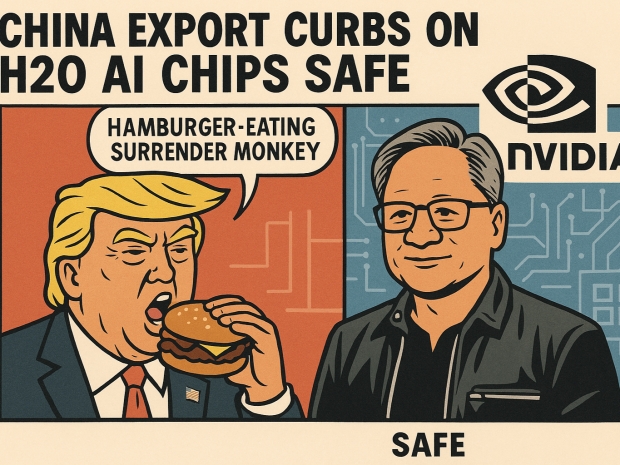Industry insiders had expected the administration to ban Nvidia’s H20, the most powerful AI chip still legally exportable to China. But following the dinner, where presumably the hamburgers flowed, saw the plan was iced, with Nvidia offering fresh US-based AI data centre investments as a sweetener.
The delay is a blow to US lawmakers' efforts to limit China's access to cutting-edge silicon. In February, Senators Elizabeth Warren and Josh Hawley pushed for a ban after China’s DeepSeek AI shocked the world with a new chatbot powered by Nvidia gear.
Chris Miller, Tufts University chip historian, said: “Even though these chips are specifically modified to reduce their performance, thus making them legal to sell to China — they are better than many, perhaps most, of China's homegrown chips.”
Chinese firms had already started hoarding the H20, with The Information reporting a $16 billion spree in the first quarter.
The chip has become vital for AI inference – the grunt work behind systems like DeepSeek, Meta’s bots, and OpenAI’s agents.
The White House and the Commerce Department refused to comment, and Nvidia kept schtum.
The backpedal comes as the Bureau of Industry and Security, tasked with enforcing these rules, struggles with staff shortages. Export control veteran Matthew Boreman jumped ship in February, part of a broader purge of CHIPS Act personnel under Trump’s ongoing federal reshuffle.
Rep. Raja Krishnamoorthi, top Democrat on the House China Select Committee, was blunt: “Export controls work, and we don't have time to waste. Every day America fails to restrict the export of chips designed to circumvent existing controls is a day that our adversaries have to build up stockpiles to defeat us.”
Big Tech share prices have shot up since Trump decided to pull the plug on his tariff plans for another 90 days. That did not apply to shipments from China.

